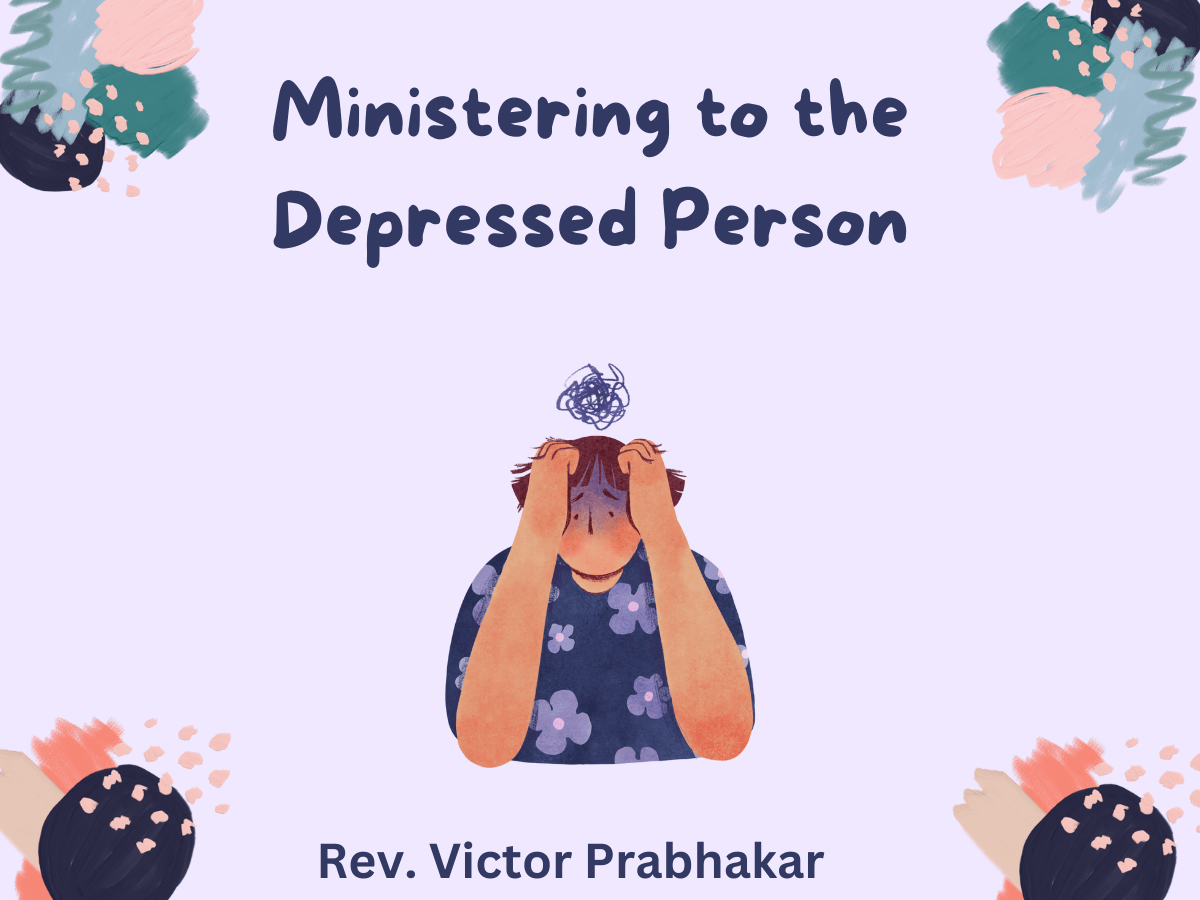
‘He heals the brokenhearted and binds up their wounds’ (Ps 147:3). We all face some form of helplessness – sometime it could be our response to minor situations such as a dented car or broken down washing machine.
However sometimes situations such as serious illness, loss of job by the breadwinner, relocation to a different part of the world, drifting apart in marriage, death of a loved one, etc. leads to acute feeling of helplessness resulting in depression. How do we help people cope with their situation?
Often the depressed persons feel everything is hopeless and responds by asserting that they have lost their faith. Warren Jones, a psychiatrist who has had much experience and great success in training lay persons to do crisis counseling suggested an approach he refers to as the ‘A-B-C Method’.A) Achieve contact with the person, B) Build focus and bring down the problems to its essentials, C) Cope actively through an inventory of the person’s ingenuity and resources.
Taking his key words and filling in the details, the total process might be like the following:
A. Achieve Contact: 1) Establish the relationship, 2) Identify the presenting problem and the precipitation event. 3) Assist catharsis. 4) Build hopeful expectation. Show interest and concern. Express warmth. Listen responsively. Communicate with empathy. This will put the person at ease, helps to elicit emotional expression and leads to rapid diminishing of anxiety. During this process the value of the new relationship should be reinforced and hopeful expectation should be built.
B. Build Focus: 5. Explore the present situation, 6) Identify the source & the nature of the threat Here the attempt is for you and the person to create an understanding of the crisis. Identify the actual source of the stress and the nature of threat on the individual. Come to an understanding on this and put it into words. This will make the person conscious of the dilemma. Only then the depressed person becomes capable of moving into the later stages of the process and is able to examine the various alternative methods of dealing with the present crisis and of making appropriate decisions concerning those alternatives.
C. Cope7) Inventory the problem solving resources, 8) Assist in decision-making, 9) Emphasize relationships with others and 10) Summarize new learning. Seek to identify the strengths of the person that they have lost sight of in the midst of the distortions of the crisis and those resources outside one’s self, one’s usual pattern of social relationships, the persons close to them (family, friends, co-workers), community helpers (ministers, doctors, lawyers), or agencies designed to help with specific. This should lead to decision and action, doing something about one’s situation.
Often the person cannot carry the burden alone. Here the resources of neighbors, friends at work, or other members of the congregation, those with whom the depressed couple has positive relationships and with whom they can feel comfortable and accepted can be tapped to help them.
Depression is an area that needs to be much better understood in Christian thinking. People who have felt that living good Christian lives serves as an insurance program against emotional difficulties become bewildered when depression strikes. It has been speculated that difficulties in expressing anger, as well as problems with feelings of self-worth related to an excessively severe conscience, contribute to the high incidence of depression. Christian in general have been accustomed to consider depression as simply a psychiatric illness with which they have little or nothing to do but to make a referral for proper medication and therapy. However, more and more research proves that a healing community is more effective than just meeting with a psychologist. The Church as a healing community contributes in the area significantly. Thus every Christian should to be part of this healing process sharing God’s love.
Author: Rev. Victor Prabhakar is an ordained minister of the Church of South India – Karnataka Central Diocese.


